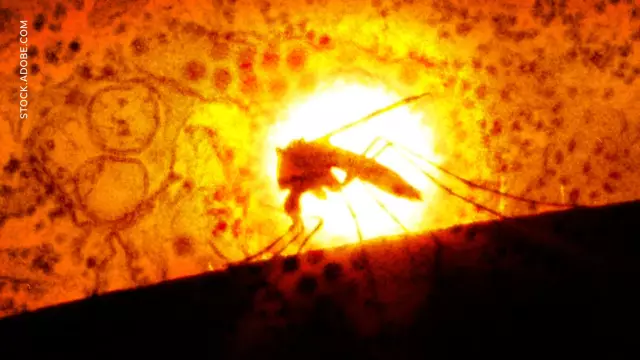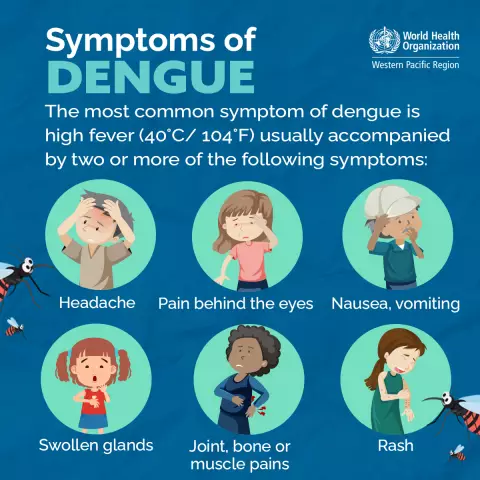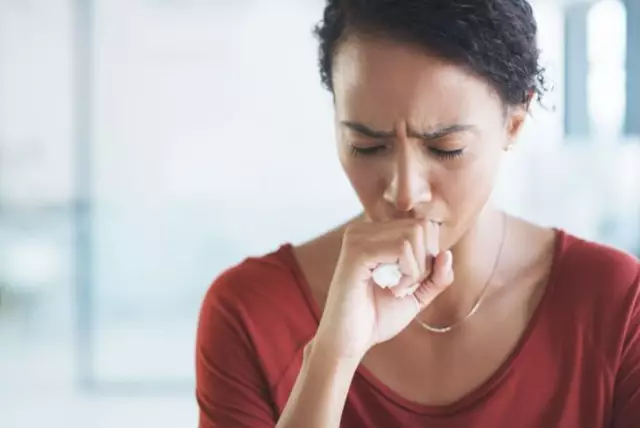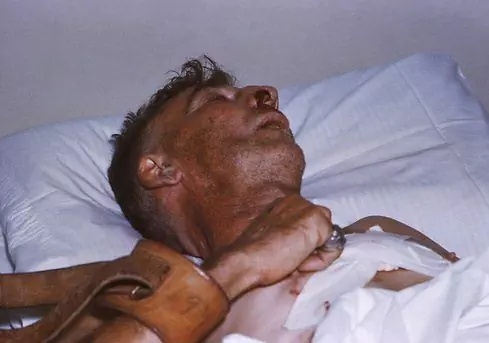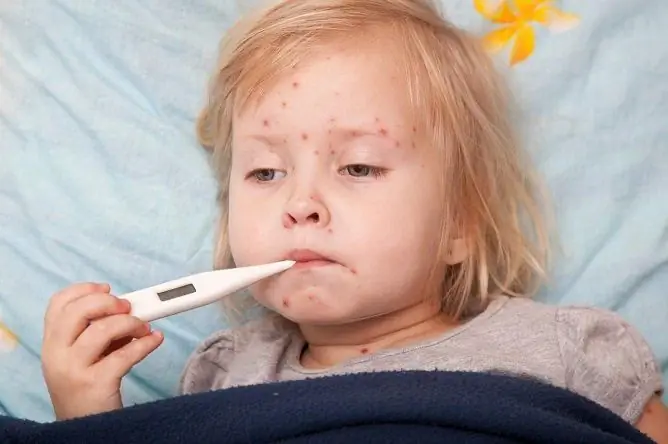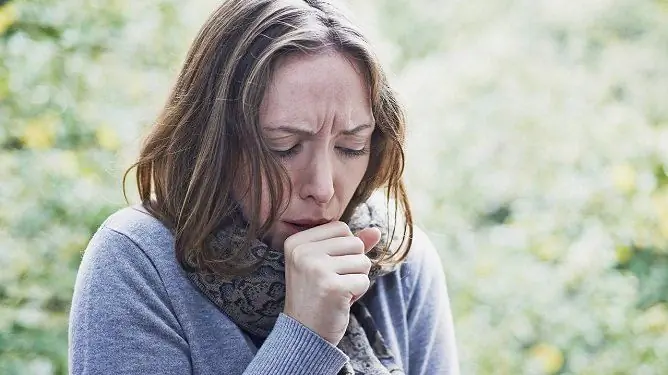- Author Rachel Wainwright [email protected].
- Public 2023-12-15 07:39.
- Last modified 2025-11-02 20:14.
Dengue fever

Dengue fever is an infectious viral disease occurring with fever, severe intoxication, arthralgia and myalgia, leukopenia, lymphadenopathy and exanthema. In some cases, Dengue fever can also occur with hemorrhagic syndrome. This disease has many synonyms: joint fever, bone crusher fever, giraffe fever, date sickness, etc.
Causes of Dengue Fever
Dengue fever belongs to the group of vector-borne zoonotic diseases, i.e. diseases transmitted by the bite of blood-sucking insects. Its causative agent is an RNA virus. The source of infection is monkeys, sick people and bats, and the mosquitoes of the genus Aedes are carriers.
Dengue fever: symptoms
The incubation period for this disease is 3 to 15 days, but most often lasts 5 to 7 days.
The disease begins to develop suddenly. Against the background of complete health, patients have a sharp chill and severe pain in bones and joints. The body temperature quickly rises to 40 0 C. Anorexia, severe weakness, insomnia, dizziness, nausea are noted. In many patients, hyperemia of the throat, injection of the scleral vessels and pasty face appear.
According to clinical signs, two forms of Dengue fever are distinguished: classic (febrile) and hemorrhagic (with bleeding).
In the classic form of the disease, the elevated temperature lasts for three days, and then critically (very sharply) decreases. After two to three days, the temperature and all the symptoms of the disease return again and persist for another three days. The characteristic symptom of Dengue fever is exanthema (small skin rash), which usually appears during the second wave of an increase in body temperature. The disease usually proceeds favorably and ends with full recovery by the ninth day from the onset of its first symptoms.
Dengue hemorrhagic fever is much more severe. It also begins suddenly with an increase in body temperature, the appearance of severe abdominal pain, nausea, vomiting, and coughing. The patient's condition rapidly begins to deteriorate, and general weakness increases. Then, these symptoms of Dengue fever are joined by hemorrhagic syndrome, manifested by the appearance of nasal, uterine, gastrointestinal bleeding. The hemorrhagic form of Dengue fever is most often observed in children and is fatal in 30% of cases. Those patients who are experiencing the height of the disease quickly recover.
Dengue fever: treatment
Currently, there are no drugs for specific treatment of Dengue fever. Therefore, patients undergo symptomatic therapy, which consists in the appointment of antipyretic, analgesic and vitamin preparations, intravenous fluid administration.

Antibiotics and corticosteroid hormones are used to treat Dengue fever with hemorrhagic syndrome, although their effectiveness has not been proven by clinical trials. If necessary, transfusion of plasma-substituting solutions is performed to maintain the water balance of the patient's body.
Prevention of Dengue Fever
Today, unfortunately, it is impossible to get vaccinated against Dengue fever, because there are no licensed vaccines to protect humans against this disease. The problem with developing a vaccine is that there are several types of Dengue virus, and the drug must protect against all of them. In addition, there are no suitable live models on which to conduct full clinical trials of the developed Dengue fever vaccine. Therefore, at present, the only ways to prevent this disease are to control mosquitoes in endemic areas, as well as protect people from their bites.
Going on vacation to the countries of Asia, you cannot get the Dengue fever vaccine. But you can protect yourself from mosquito bites that carry the virus. To do this, go outside, regularly use repellents. Do not leave your hotel room windows open in the evenings, especially if there are no mosquito nets on them. Following these simple rules will help you protect yourself from a dangerous disease like Dengue fever.
YouTube video related to the article:
The information is generalized and provided for informational purposes only. At the first sign of illness, see your doctor. Self-medication is hazardous to health!

